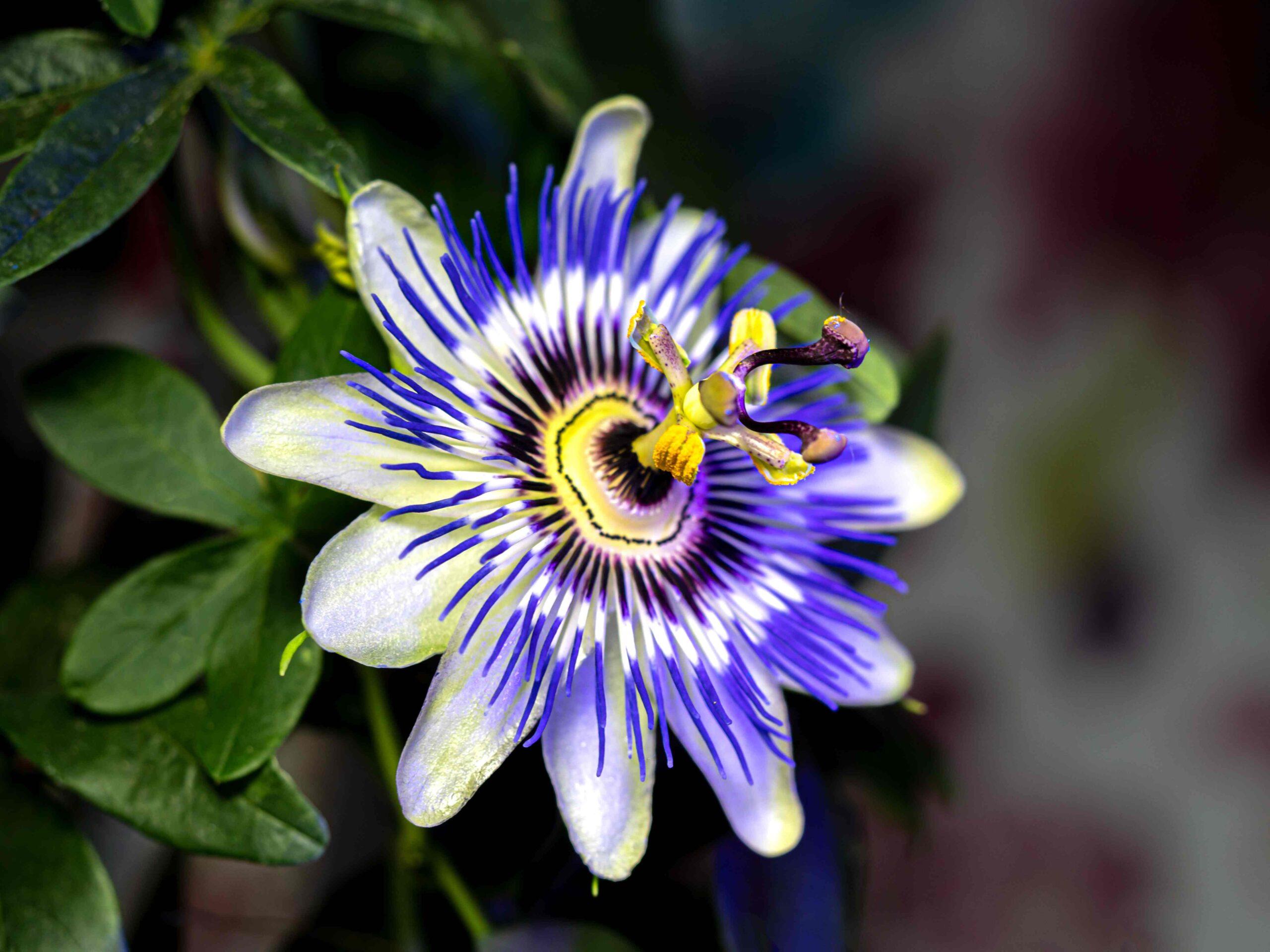The Benefits of Passionflower: Enjoy the Serenity
Have you heard of passionflower, but are not sure what it is? This remarkable herb was traditionally used in the Americas and Europe for its calming effect, treating anxiety and insomnia.
Today, we use passionflower for the same purpose but have discovered how it works and even other uses. Let’s explore all the mental and physical health benefits of passionflower.
What Is Passionflower?
Passionflower is also known as apricot vine, maypop, wild passionflower, and by its scientific name Passiflora incarnata. It grows as a vine; is found in the southeastern US, Central America, and South America; and possesses great nutritional benefits.
Passionflower is rich in vitamin C, vitamin A, antioxidants, and fiber, making it a powerful food and medicinal source for hundreds of years. Its unique value comes from its leaves, stems, and flowers and can be harvested to make tinctures, teas, or passionflower extract.
Biochemistry Mechanism: How Does Passionflower Work?
Passionflower contains several chemical compounds that promote muscle relaxation, reduce anxiety, curb seizures, and possess anti-depressive effects.
Passionflower increases a chemical called gamma-aminobutyric acid (GABA) that lowers the activity of brain cells by blocking signals in your central nervous system. GABA is known to produce a calming effect and is thought to play a role in controlling nerve cell hyperactivity associated with anxiety and stress.
Ultimately, passionflower improves GABA function by supplying your body with this neurotransmitter. In addition to providing GABA, passionflower affects the reuptake of GABA, ensuring there is more in your system. Equally important, GABA isn’t the only pathway that passionflower affects—it slows messages, giving the brain time to process information and preventing you from feeling overwhelmed and anxious.
In research comparing passionflower to seizure medications, researchers have consistently pointed to passionflower to aid both seizures and depression associated with seizures. Behind this extra perk are alkaloids that function similarly to monoamine oxidase inhibitors (MAOIs)—a type of antidepressant medication.
Passionflower contains the flavonoid chrysin, which helps suppress seizures by operating as a central nervous system (CNS) depressant. Doctors also regularly prescribe CNS depressants to treat panic attacks and insomnia.
In addition to all these benefits, passionflower also possesses mild anti-inflammatory properties, which can promote your overall health.
Sources of Passionflower
Passionflower extracts generally contain 2-3% GABA by weight and is found in many fermented foods and vegetables. These include:
- Cocoa
- Fava beans, soy, and lentils
- Walnuts and almonds
- Sunflower seeds
- Shrimp and halibut
- Citrus fruits, tomatoes, berries, raw spinach, broccoli, and sweet potatoes
- Kale
Tea often contains some GABA and teamakers can increase the content with a controlled fermentation process.
The Benefits of Passionflower
Operating on multiple neurotransmitter pathways, passionflower has multiple effects on the body’s nervous system. Passionflower also has many applications to improve your quality of life and alleviate ailments, being used for:
- Pre-surgery anti-anxiety
- Insomnia
- Anxiety
- Epilepsy
- Heart arrhythmia
- Menopausal symptoms
- ADHD
- Hemorrhoids
Let’s unpack some of these further.
Passionflower for Surgery
Some studies show that passionflower when taken before surgery, can help reduce anxiety. Similar to drugs regularly used for surgery, passionflower relaxes the body’s muscles by increasing GABA receptor activity. Passionflower may even be preferable to typical drugs because, unlike midazolam, it doesn’t cause anterograde amnesia. Passionflower may, however, interact with anesthesia medications and must only be taken with consent from your doctor.
Passionflower as a Sleep Aid
Like passionflower, other traditional sleep aids influence your GABA receptor system. Melatonin helps improve GABA receptors‘ function.
GABA systems are a crucial part of falling asleep. By affecting the GABA system, passionflower can support relaxation to overcome sleep disruptions.
Passionflower as an Anti-Anxiety Supplement
Passionflower compares favorably to anti-anxiety/anxiolytic drugs. A review of passionflower’s effect on neuropathological disorders found, “The anti-anxiety effect of Passiflora incarnata is comparable to drugs such as oxazepam or midazolam.” Passionflower was found to have similar efficacy to anti-anxiety medications, yet doesn’t have negative side effects, like memory loss.
Seizure Prevention
While traditional medicine practices in the Americas and Europe prescribe passionflower to treat seizures, new studies are finding scientific backing for this use. Passionflower has been found to reduce the onset of drug-induced seizures in a controlled setting and also decrease the chance of depression post-seizure.
While results are promising, there must be more studies to understand the process.
Taking Passionflower for Your Health
The National Center for Complementary and Integrative Health recommends limiting your passionflower dosage to 800mg of extract a day for eight weeks maximum. Passionflower has a sedative effect and can be unsafe if over-consumed.
Passionflower has a long tradition of use and possesses many powerful bioactive components. To ensure your safety, as with any herbal medication, consult your doctor before taking passionflower. There are potential interactions with MAOI inhibitors and surgery medications, yet more studies are needed to understand passionflower’s full effects.




